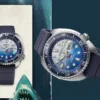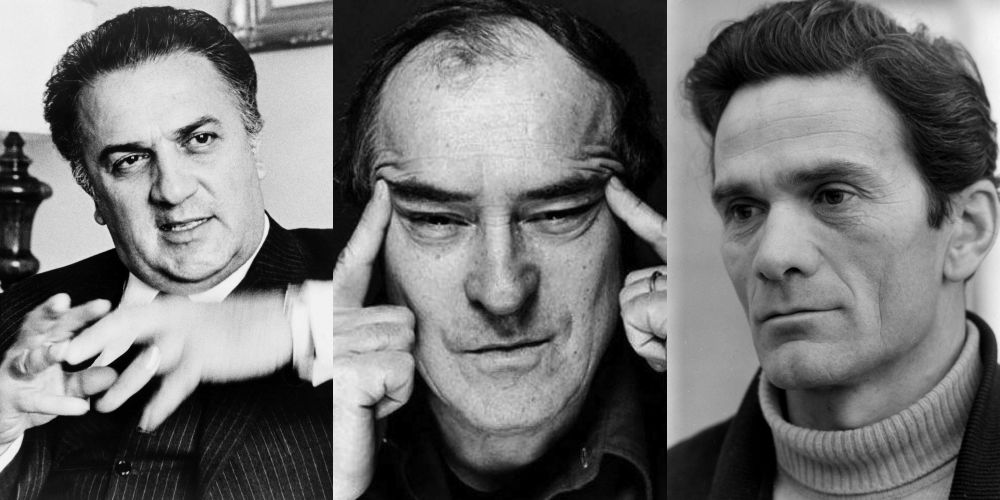Roman art is probably (mostly) responsible for the outstanding contribution to the art of Western culture. This continued through the Middle Ages with ecclesiastical art and music, and today the Italians are still leaders in the world of film art. They paved the way for all filmmakers, both at home and around the world. Today's most recognizable directors, such as Martin Scorsese and Francis Ford Coppola, have publicly acknowledged that they are eternally indebted to these incredible Italian filmmakers. Here are ten of the best Italian film directors of all time.
10. Roberto Benigni (1952)
Benigni is the youngest on this list and probably the most familiar to younger audiences. He acted and directed a tragicomedy La vita è bella (Life is beautiful, 1997), a story about a Jew and his son who end up in a concentration camp. The film was nominated for seven Academy Awards and Benigni won the Academy Award for Best Actor and the Academy Award for Best Foreign Language Film. Benigni then directed two more films: Pinocchio (Ostržek, 2002) and La tigre e la neve (Tiger and Snow, 2005).
Movies: Non ci resta che piangere (1984), Il piccolo diavolo (1988), Il mostro (1994), La vita è bella (Life is beautiful, 1997), Pinocchio (Ostržek, 2002), La tigre e la neve (Tiger and Snow, 2005).
9. Sergio Leone (1929 – 1989)
Sergio Leone, best known for his spaghetti westerns, practically invented the extreme close-up in westerns. Leone was born into a film family, his father was a cinema pioneer and his mother an actress. He often asked his composers to write the music for the film in advance - he then played the music during the shooting of the film, thereby improving the performance and efficiency of his actors. Critical opinion tended to be divided, in part because spaghetti westerns were first viewed as a trivial genre. Today, Leone is hailed as a masterful director.
Movies: Per qualche dollaro in più (For a Dollar More, 1965), Il buono, il brutto, il cattivo (The Good, The Ugly, The Wicked, 1966), C'era una volta il West (Once Upon a Time in the Wild West, 1968), Once Upon a Time in America (Once Upon a Time in America, 1984).
8. Pier Paolo Pasolini (1922 – 1975)
Pier Paolo Pasolini is known for his shocking and controversial last film Salò o le 120 giornate di Sodoma (Salo or 120 Days of Sodom, 1975), based on the book of the same name by Donatien Alphonso François de Sade, better known as the Marquis de Sade. As a director, Pasolini created a kind of picaresque neorealism, where he showed a sad reality (hidden, but concrete), and social or political forces had no interest in showing this vision through the work of art to the public. In his works, the director also promoted the concept of "natural holiness", the idea that the world is holy in itself and does not need any spiritual essence or supernatural blessing to achieve such a state. Pasolini was an avowed communist, homosexual and atheist. He was murdered in 1975.
Movies: Accattone (Beggar, 1961), Mamma Roma (1962), Il vangelo secondo Matteo (Gospel according to Matthew, 1964), Theorem (Theorem, 1968), Il fiore delle mille e una notte (Flower of a Thousand and One Nights, 1974), Salò o le 120 giornate di Sodoma (Salo or 120 days of Sodom, 1975).
7. Franco Zeffirelli (1932)
While Zeffirelli is not so well known to the international public for his film adaptation of Romeo and Juliet in 1968, he is known for the miniseries Jesus of Nazareth (1977), which is still shown in many countries every Easter. In his youth Franco Zeffirelli studied art and architecture and worked with directors such as Vittorio De Sica, Roberto Rossellini and Luchino Visconti. Among other things, Zeffirelli is well known for directing operas in the world's great opera houses. He is critically approved by the gay community, as he supports the Catholic Church's stance on homosexuality (despite the fact that he is gay himself).
Movies: Romeo and Juliet (1968), Jesus of Nazareth (1977), Storia di una capinera (1993), Jane Eyre (1996).
6. Roberto Rossellini (1906 – 1977)
Rossellini is one of the most important directors of Italian film neorealism, a style characterized by stories about the poor, working class, shot on location and often by semi-professional actors. In a 1963 essay, Francois Truffaut (film critic) drew attention to Rossellini's influence in France (especially among members of the Nouvelle Vague), which was so great that he was, in all respects, the "father of the French New Wave". Roberto Rossellini married Ingrid Bergman, they had a daughter, Isabella Rossellini, who is also a famous actress today.
Movies: Roma città aperta (Rome, Open City, 1945), Paisà (Paisa, 1946), Francesco, giullare di Dio (Francisek, singer of God, 1950), Stromboli, terra di dio (Stromboli, 1950), Europe '51 (1952), Viaggio in Italy (Journey to Italy, 1954), La prize de pouvoir par Louis XIV (The Rise of King Louis XVI, 1966).
READ MORE: The must-see cult noir films
5. Luchino Visconti (1906 – 1976)
Visconti was born into a noble and wealthy family (one of the richest in northern Italy) in Milan. His father was Duke Grazzano. Due to his upbringing, Luchino was often in contact with the leading artists of the time, such as Puccini and Toscanini.
Visconti was primarily a neorealist. In 1969 there was his film La caduta degli dei (The Damned, 1969) nominated for an Oscar, which, among other things, brought him international fame. The decadence and opulent beauty of this film characterize Visconti's aesthetic, and this can be seen in all of his films.
Movies: Obsessions (Obsession, 1943), Sense (1954), Le notti bianche (White Nights, 1975), Rocco ei suoi fratelli (Rocco and his brothers, 1960), Il gattopardo (Leopard, 1963), Morte a Venezia (Death in Venice, 1971).
4. Vittorio De Sica (1902 – 1974)
Vittorio De Sica also belongs to the neorealist directors. He was born in poverty and later became an actor. This led him to start his own company, which mostly featured light comedies. During this time, however, he met Luchino Visconti. He also met Cesare Zavattini, a brilliant Italian neorealist screenwriter, and began a long collaboration with him. His movie La ciociara (Two Women, 1960), in which Sophia Loren also plays, is easily his best.
Movies: I bambini ci guardano (Children are watching us, 1944), Sciuscià (The Shoe Shines, 1946), Ladri di biciclette (Bicycle Thieves, 1948), Umberto D. (1952), La ciociara (Two Women, 1960), Ieri, oggi, domani (Yesterday, Today, Tomorrow, 1963), Matrimonio all'italiana (Wedding in Italian style, 1964).
3. Bernardo Bertolucci (1940)
Bernardo Bertolucci is an Oscar-winning director. He won the Oscar for best director for his film The Last Emperor (The Last Emperor of China, 1987), the first Western film made in and about China. Bertolucci's father was a poet, and as a boy Bernardo wanted to follow in his father's footsteps. Bertolucci is the father of many extremely successful films, including Ultimo tango a Parigi (Last Tango in Paris, 1972).
Movies: Prima della rivoluzione (Before the Revolution, 1964), Il conformista (Conformist, 1970), Ultimo tango a Parigi (Last Tango in Paris, 1972), Novecento (1900, 1976), The Last Emperor (The Last Emperor of China, 1987), Stealing Beauty (I dance alone, 1996), The Dreamers (Dreamers, 2003).
2. Michelangelo Antonioni (1912 – 2007)
Michelangelo Antonioni is a modernist director whose films are considered the most influential films in film aesthetics. He was born into a good family of owners of various lands in northern Italy. He and his brother spent most of their childhood outdoors, where they played with friends from poorer families. Antonioni's early films had a tremendous influence on art films, as he encouraged filmmakers to explore an elliptical and open-ended narrative more than any other director.
Movies: L'Avventura (Adventure, 1960), La Notte (Night, 1961), L'Eclisse (Eclipse, 1962), Red Desert (Red Desert, 1964), Blow Up (Enlargement, 1966), Zabriskie Point (Kota Zabriskie, 1970), Profession: reporter (Profession: reporter, 1975).
1. Federico Fellini (1920 – 1993)
Fellini is well known for his distinct style, mixing fantasy and baroque imagery. He is considered one of the most influential and respected filmmakers of the 20th century. During Mussolini's fascist regime, Federico and his brother Riccardo were part of the Avangurdiste, a fascist youth organization that every young boy had to join.
Fellini has won numerous awards throughout his career, including four Oscars, two Silver Lions, the Palme d'Or and the Grand Prize at the Moscow International Film Festival.
Movies: La Strada (The Road, 1954), Le notti di Cabria (Kabiria's Nights, 1957), La dolce vita (The Sweet Life, 1960), Otto e mezzo 8½ (Eight and a Half, 1963), Amarcord (Amarkord, 1973), La città delle donne (City of Women, 1980).





